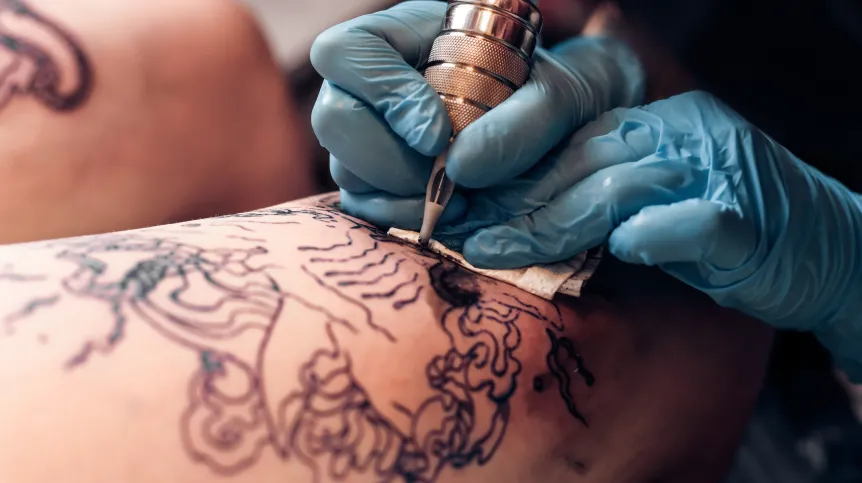
From a health perspective, tattoos are not worth getting, says Maciej Pastuszczak, a dermatologist from the Medical University of Silesia. He points to, among other things, the potential carcinogenicity of some ingredients of inks, and the increased risk of pathogenic processes.
Dr. Pastuszczak is a specialist in dermatology and venereology, as well as clinical immunology, and head of the university’s Clinical Department of Dermatology in Zabrze.
'In our living environment, we are already exposed to so many harmful substances that I think it is not worth adding more', he says.
To ensure the tattoo’s durability, the ink should be injected into the dermis - a place rich in vascularization and innervation. Inks are chemical substances, which means that they can cause allergic reactions - in the short term, e.g. hives, and in the long term - eczema-like changes.
'This is a medical problem, because unlike, for example, hair dye, the ink from a tattoo cannot be removed easily and quickly. As a result, the symptoms can persist for a long time, intensify and become increasingly more problematic', Dr. Pastuszczak says.
More complicated immunological reactions may also occur, consisting of the formation of granulomas, i.e. infiltrative changes. They can occur in the skin subjected to the procedure, but also in internal organs.
Piercing the skin during the procedure is also potentially dangerous. Although hygiene conditions in tattoo parlours have improved significantly in recent years, there are still cases of infections requiring antibiotics, and more serious ones - including hepatitis B and C, and HIV.
Dr. Pastuszczak advises great caution when getting tattoos in patients with dermatological conditions such as psoriasis, lichen planus or atopic dermatitis. In the latter case, chronic inflammation of the skin and improper functioning of the epidermal barrier can result in poor healing and infections after tattooing. In turn, in the case of psoriasis, skin irritation (even scratching) can cause psoriatic lesions.
For a dermatologist, the skin of a patient with numerous tattoos is difficult to assess. Although there are not many scientific reports on this subject yet, preliminary data indicate later diagnosis of cancers such as basal cell carcinoma, squamous cell carcinoma or malignant melanoma on tattooed skin.
In addition, studies in Sweden on a group of 12,000 people showed that regardless of the number, location and size, tattoos are associated with an increased risk of developing lymphoma - due to the risk of mutations in the process of multiplying lymphocytes reacting to the ink as a material not originating from the body.
The inks themselves are, for example, hydrocarbons, which are derivatives of petroleum, often additionally containing nickel, cadmium, cobalt, chromium, copper, aluminium or manganese. The least safe of them seems to be red dye, which often contains mercury salts and cyanides. Many of these ingredients are potentially carcinogenic.
The side effects of a tattoo, related to the composition of the ink, include symptoms of burning, tingling, and even swelling and redness of the tattooed skin subjected to an MRI scan. This is due to the impact of the electromagnetic field on metals in the ink.
If someone already has a tattoo, Dr. Pastuszczak suggests that immediately after getting it, the often irritated and slightly swollen skin should be treated with preparations for people with atopic dermatitis. Sweating and exposure to the sun should be avoided for up to two weeks after getting a tattoo. (PAP)
mtb/ jann/ kap/
tr. RL













